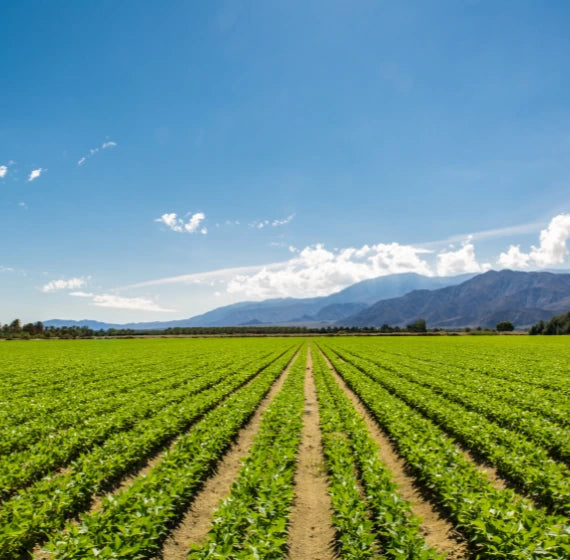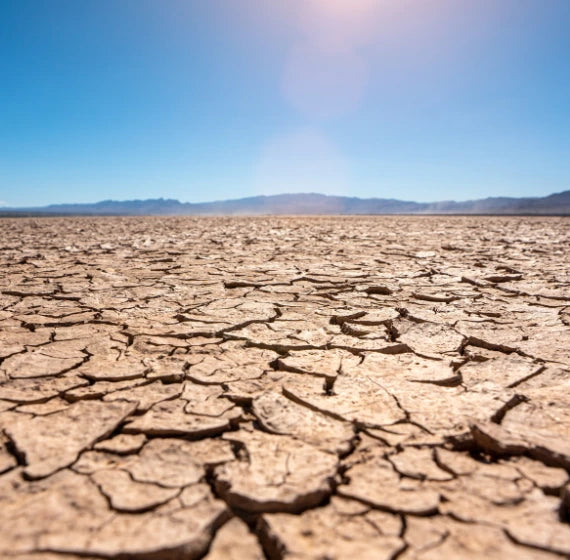Pea Seed Premium Quality (25kg) ICS Seeds (Tara Group)
Pea Seed Premium Quality (25kg) ICS Seeds (Tara Group)
Available in stock (1000)
The Peas Seed Premium Quality (25kg) from Tara Group of Pakistan stands out as an excellent choice for farmers who are determined to maximize their pea production.
Key Features
Feature |
Description |
|
Premium Quality |
Selected for high germination rates and disease resistance. |
|
Available in a convenient 25kg bag, suitable for various planting needs. |
|
|
Recommended Usage |
50kg of seeds per acre for optimal planting density. |
|
Versatile Growth |
Suitable for a range of climatic conditions and soil types. |
1. Premium Quality Seeds
The Peas Seed Premium Quality has been meticulously selected to ensure high germination rates and robust growth. This means that you can expect a higher percentage of seeds to sprout, resulting in a more productive crop. The seeds are also bred to be resilient against common diseases that can plague pea plants, reducing the likelihood of crop failure.
2. Convenient Pack Size
The seeds come in a 25kg bag, making them an ideal choice for both commercial and small-scale farmers. Whether you’re cultivating a large field or a small garden, this pack size offers flexibility and convenience. The packaging is designed to keep the seeds safe from environmental factors, ensuring their quality until planting time.
3. Recommended Usage for Optimal Results
To achieve the best results, it is recommended to plant 50kg of seeds per acre. This planting density allows the plants enough space to grow while maximizing yield potential. Following this guideline will enable you to cultivate a healthy and productive pea crop, essential for both personal consumption and commercial sales.
4. Versatile Growth Conditions Of Pea Seed
One of the standout features of the Pea Seed Premium Quality is its versatility. These seeds are suitable for a variety of climatic conditions and soil types. Whether you are farming in arid regions or areas with abundant rainfall, these seeds can thrive, making them an excellent choice for diverse agricultural environments.
Benefits of Choosing Pea Seed Premium Quality
1. High Yields
The combination of premium genetics and careful selection results in plants that produce a bountiful harvest. Farmers can expect a significant return on their investment when using these seeds, making them a smart choice for any agricultural operation.
2. Disease Resistance
The seeds are bred with disease resistance in mind, which means fewer losses due to pests and diseases. This can lead to lower costs for farmers in terms of pest control and disease management.
How To Plant Pea Seeds
Step-By-Step Guide
-
Soil Preparation:
-
Test the soil pH to ensure it is between 6.0 and 7.0.
-
Loosen the soil to a depth of at least 12 inches and remove any weeds.
-
-
Fertilization:
-
Incorporate organic matter or balanced fertilizers to improve soil fertility.
-
Ensure phosphorus levels are adequate for healthy root development.
-
-
Planting:
-
Plant the seeds at a depth of 1 to 2 inches.
-
Space seeds about 2 inches apart to avoid overcrowding.
-
-
Watering:
-
Water the seeds immediately after planting.
-
Keep the soil moist but not waterlogged during germination.
-
-
Maintenance:
-
Monitor for pests and diseases regularly.
-
Use organic or chemical controls as necessary.
-
-
Harvesting:
-
Harvest peas when they are firm and bright green.
-
Avoid letting the pods over-mature on the plant.
-
Frequently Asked Questions
What is the germination rate of these seeds?
The germination rate for Pea Seed Premium Quality is typically high, often exceeding 90%. This ensures that farmers can expect a healthy stand of plants.
Can these seeds be planted in any soil type?
Yes, these seeds are versatile and can be planted in various soil types, including sandy, loamy, and clay soils, provided they are well-drained.
How long does it take for the seeds to germinate?
Pea seeds usually germinate within 7 to 14 days, depending on soil temperature and moisture conditions.
What is the ideal growing temperature for peas?
Peas thrive in cooler weather, with ideal growing temperatures ranging from 60°F to 75°F (15°C to 24°C).
Are there any specific diseases to watch for?
Yes, common diseases that can affect pea crops include powdery mildew, downy mildew, and root rot. Regular monitoring and preventive measures are recommended.
Couldn't load pickup availability
Don’t miss out on this limited-time advantage crafted for you
About This Product
About This Product
Our agriculture products are selected to help farmers grow healthy crops and achieve better yields. Every product is genuine, effective, and trusted in the farming community.
Why Choose This Product?
- 🌱 Improves crop growth and protection
- 💧 Easy to apply with clear instructions
- 🛡️ Safe and reliable for farm use
- 📦 Delivered fresh with secure packaging
We aim to provide farmers with the right solutions for every season.
Product Highlights
Product Highlights
- Genuine and trusted by farmers
- Supports crop health and yield
- Easy to apply with clear guidance
- Suitable for major crops in Pakistan
- Safe and effective for long-term use
Shipping & Return
Shipping & Return
We deliver all across Pakistan, aiming for same-day delivery whenever possible. Most orders reach you within 2–4 working days, packed with care. If you receive a damaged or wrong product, you can request a return or exchange within 7 days — quick, simple, and hassle-free.
Your payment information is processed securely. We do not store credit card details nor have access to your credit card information.

Growing Better Harvests, Every Season
At IR Farm, our mission is simple: provide genuine, high-quality products that help farmers increase crop yield, protect against pests, and improve overall farm productivity. We combine experience, care, and innovation to support farmers across Pakistan in every step of their journey.
4 Steps to a Healthier Farm
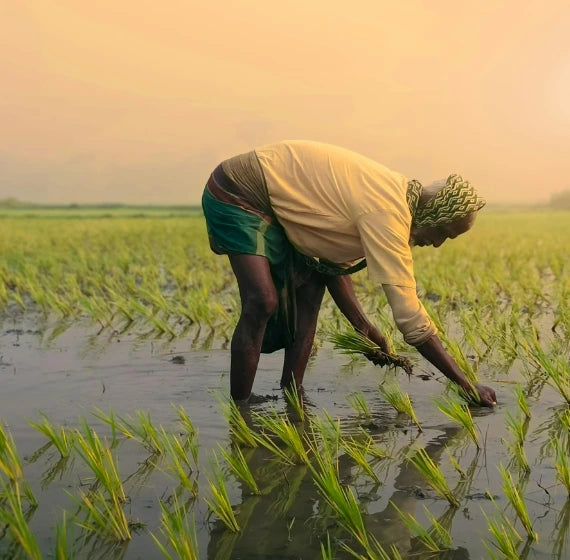
Prepare & Protect
Give your crops the strong foundation they need. Healthy soil and proper preparation ensure that seeds, fertilizers, and crop protection products work effectively to support growth and resist pests.
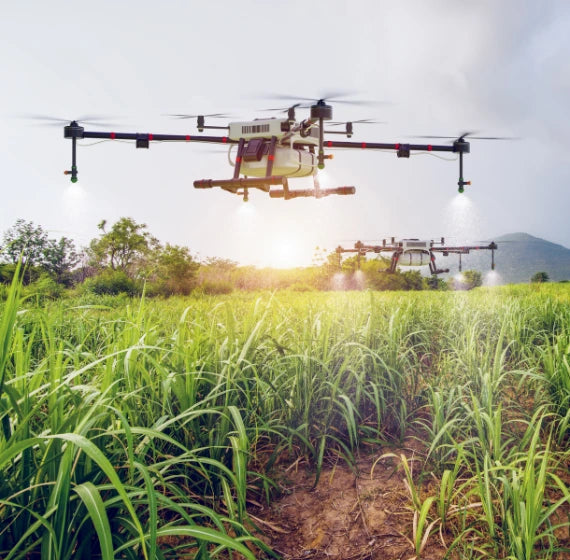
Nourish & Boost
Provide essential nutrients and supplements to your crops. Using the right fertilizers and growth enhancers helps plants develop strong roots, vibrant leaves, and better overall health.
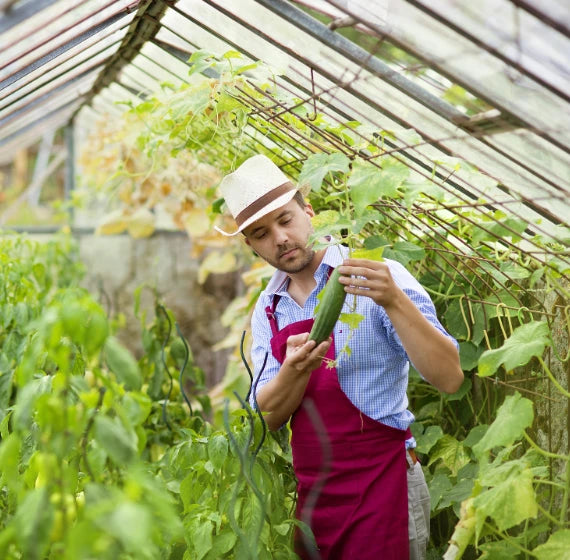
Monitor & Care
Regularly check on your plants to prevent diseases, pests, or nutrient deficiencies. Timely observation and care help maintain crop quality and maximize yields.
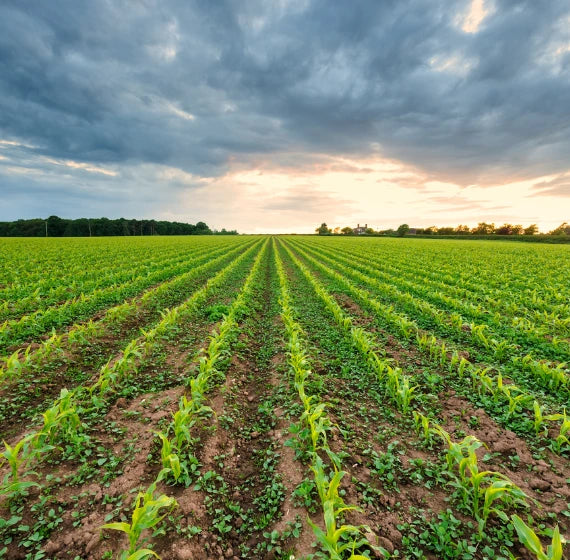
Harvest & Celebrate
Reap the benefits of your hard work! Healthy, thriving crops lead to higher yields, better profits, and the satisfaction of seeing your farm flourish.
Discover more in our FAQ
Are your products original?
Are your products original?
Yes, all our products are 100% genuine. We source seeds, fertilizers, and pesticides directly from trusted companies to make sure farmers always get reliable quality.
How many days does delivery take?
How many days does delivery take?
Normally delivery takes 2–4 working days anywhere in Pakistan. We ship through Leopard and TCS, so even remote areas are covered quickly.
Do you offer Cash on Delivery?
Do you offer Cash on Delivery?
Yes, Cash on Delivery is available all over Pakistan. You can check your parcel before paying to stay worry-free.
What if I get a wrong or damaged product?
What if I get a wrong or damaged product?
No problem at all. If you receive the wrong or damaged item, just contact our support team. We will arrange a quick replacement or refund without hassle.
We’re on Gram
plantbasedglow
crueltyfreequeen
naturalskincare
purelyvegan
wholesomeglow











